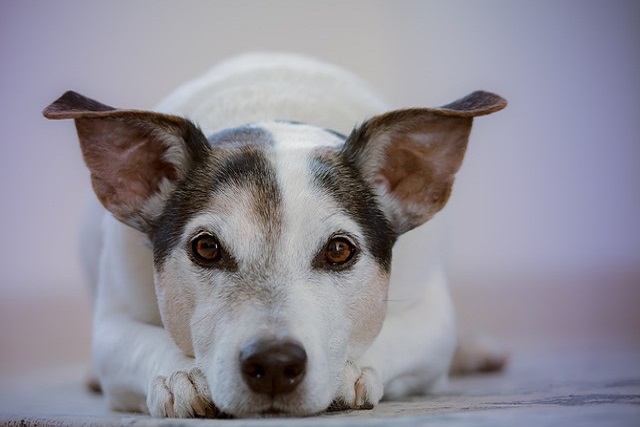
How can I tell if my dog's heatstroke is serious
Let’s be real: It’s a sticky August morning in Los Angeles, and you took your 2-year-old Golden Retriever, Max, for a walk a little later than usual
Imagine sitting on the couch, trying to relax, when your adorable puppy pounces on your hand, nibbling with sharp little teeth. If your dog is in the teething phase and seems to turn everything into a chew toy—including your fingers and furniture—you're probably wondering what to do. Teething is a natural but challenging time for both puppies and their owners, but with the right approach, you can navigate it smoothly.
Puppies typically start teething around three to four months old, and it can last until they're seven or eight months. During this period, their baby teeth fall out, and adult teeth start to emerge. Just like human babies with sore gums, puppies chew to relieve discomfort. But this natural instinct can quickly become a problem if not properly managed. Take Bella, a feisty Pomeranian puppy. Her owner noticed that she would lunge at shoelaces, couch cushions, and even bare feet, leaving behind tiny bite marks and scratches.
First things first, let's talk about legal responsibilities. In most Western regions, ensuring your dog's vaccinations are up - to - date is crucial. Rabies vaccines, in particular, are mandatory in many places, such as major cities like Los Angeles or London. This not only protects your puppy but also those around them. Additionally, whether you're walking your teething puppy in a local park or on a busy sidewalk, always clean up after them. Failing to do so can result in fines and is considered poor community etiquette.
When it comes to addressing the biting behavior, forget about using physical punishment or scolding. Yelling at your puppy or swatting them on the nose won't teach them what you want; instead, it can create fear and damage your bond. Positive reinforcement is the key. Whenever your puppy chooses to chew on an appropriate toy instead of your skin or furniture, shower them with praise, give them a delicious treat, or play a fun game of tug - of - war (with a proper tug toy, of course). This way, they learn that good behavior leads to great rewards.

For apartment dwellers, the limited space can make it challenging to keep your teething puppy entertained. Rotate their chew toys regularly to keep things interesting. Puzzle toys that dispense treats can also engage their minds and soothe their gums at the same time. If you're worried about damage to furniture, consider using bitter - tasting sprays designed for pets on items you want to protect. The unpleasant taste will deter your puppy from chewing without causing any harm.
Socialization is also important during the teething phase, but with caution. When introducing your puppy to new people, let them know that your puppy is teething and might nibble. Encourage gentle interactions and teach your puppy that hands are not for biting. If your puppy gets too excited and starts biting during play, take a short break. This teaches them that biting means the fun stops.
Another effective strategy is to provide a variety of appropriate chew items. Soft rubber chew toys, frozen carrots (always supervise your puppy when they have these), and specialized teething rings can offer relief. Keep these toys easily accessible to your puppy so they're more likely to reach for them instead of your belongings.
Navigating the teething phase requires patience and consistency. By understanding your puppy's needs, using positive training methods, and fulfilling your responsibilities as a pet owner, you can help your furry friend through this stage while preventing bad biting habits from forming. Remember, every puppy grows out of teething, and with the right support, you'll soon have a well - behaved adult dog.

Let’s be real: It’s a sticky August morning in Los Angeles, and you took your 2-year-old Golden Retriever, Max, for a walk a little later than usual

You're enjoying a summer afternoon at the park when you notice your dog has stopped panting and appears disoriented - their gums are bright red

Let’s paint the picture: You’re in your Denver apartment, watching your 4-year-old Boston Terrier, Ruby, plop down mid-play session with her favorite toy

Many dog owners notice their pets nails seem shorter after regular walks,but how much does this daily activity actually help?The answer depends on where you walk—concrete sidewalks or asphalt streets gently file nails as a dog's paws hit the ground

Most dog owners notice their pup scooting across the carpet at some point, but few connect it to impacted anal glands. These small sacs near a dog’s rectum secrete a scent for marking territory

Most vets agree that regular dog teeth cleaning is key to avoiding painful dental issues later. For healthy adult dogs, a professional cleaning at the vet’s office every 12 to 18 months usually works well.